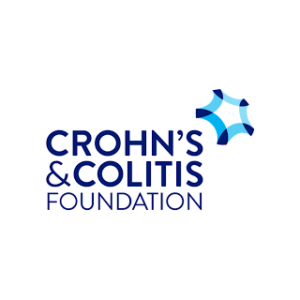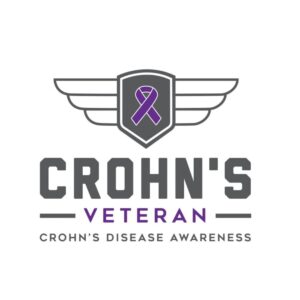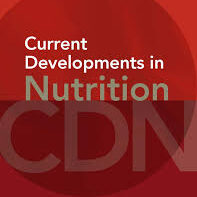Can You Die from Crohn’s Disease? Life Expectancy and Potential Complications
Danielle Gaffen, MS, RDN, LD
- Last Updated
Many people with Crohn’s disease wonder if it is fatal and what potential complications it presents. In this blog, we will explore the disease’s progression, life expectancy, and potential complications.
If you’ve ever wondered if you can die from Crohn’s disease, you aren’t alone. This is a common question because Crohn’s disease is a chronic inflammatory bowel disease that affects the digestive tract’s lining. It causes inflammation that can lead to a range of symptoms, including diarrhea, abdominal pain, and fatigue. While Crohn’s disease can be managed with medication, diet, and lifestyle changes, it is a lifelong condition with no cure.
This blog post will delve into the progression of the disease, as well as an overview of the potential complications and their impact on life expectancy.
Crohn’s Disease Life Expectancy
Although many people with Crohn’s disease can live healthy lives with prolonged periods of remission, certain risk factors may impact their life expectancy. These factors include:
- gender
- medication usage
- smoking
- age at diagnosis
- disease severity
- organ damage due to prolonged inflammation
Seeking early treatment and following the doctor’s recommendations can help manage Crohn’s effectively and prevent any complications. However, not everyone develops serious complications from Crohn’s disease.
Research Around Life Expectancy and Mortality Among Crohn’s Patients
While new treatments are emerging, a 2009 meta-analysis discovered there may be slightly increased mortality among Crohn’s patients, particularly women. A more recent study from 2020 found that life expectancy for people with inflammatory bowel disease (IBD) has increased but is still lower than those without IBD. Females with IBD may live 6.6 to 8.1 years less, and males may live 5.0 to 6.1 years less than individuals without IBD.
Medications and Life Expectancy
Taking certain medications like thiopurines for prolonged periods may also affect lifespan, increasing the risk of opportunistic infections and lymphoma. However, some people choose to take thiopurines to stay in remission longer.
Age, gender, and disease severity are essential factors that influence how withdrawing from thiopurines may affect lifespan. IBD warriors with severe symptoms may increase lifespan by continuing to take thiopurines, and also have a decreased risk of developing colorectal cancer.
Crohn’s Disease Complications
Crohn’s disease itself is not considered fatal. However, there are some rare cases where it can be life-threatening due to complications caused by the condition.
Crohn’s disease can lead to serious complications that may potentially be life-threatening if left untreated. These complications can affect various parts of the body. Some of the most common complications include the following.
1. Bowel obstruction
Inflammation and scarring can narrow the intestine, resulting in what is known as a “stricture“, in people with Crohn’s disease. This can lead to a range of symptoms, including:
- Abdominal pain
- Bloating
- Constipation
Strictures can occur anywhere in the gastrointestinal tract, but they are most commonly found in the small intestine.
When a stricture is caused solely by inflammation, it is more likely to be reversible with medication. However, if chronic inflammation causes a scar to form, medication may be less effective, and surgical intervention may be necessary to remove the affected segment of the bowel.
In the absence of proper treatment, a stricture can lead to bowel obstruction, which can cause severe symptoms, such as:
- Severe abdominal pain
- Bloating
- Vomiting
- Constipation
In severe cases, bowel perforation may occur, which is a medical emergency that requires immediate treatment to avoid potentially fatal consequences.
2. Fistulas
Fistulas are abnormal connections or passageways that develop between different parts of the intestine or between the intestine and other organs, such as the bladder or skin. Fistulas can cause severe pain, drainage, and infections that can be difficult to treat.
3. Abscesses
Abscesses are pockets of pus that can form in the wall of the intestine or in other parts of the body, such as the liver, lungs, or skin. Abscesses can cause fever, chills, and pain, and may require drainage or surgery to treat.
4. Blood Clots
Chronic inflammation can increase the risk of blood clots, which can be life-threatening if they travel to the lungs or brain.
5. Medication side effects
Some medications used to treat Crohn’s disease, such as corticosteroids and immunosuppressants, can have serious side effects, including increased risk of infection, bone loss, and liver damage.
6. Malnutrition
Malnutrition is a common complication of Crohn’s disease. One reason for this is the chronic inflammation in the digestive system can damage the lining of the intestines, leading to malabsorption of nutrients and reduced ability to digest food properly. As a result, people with Crohn’s disease may not be able to obtain sufficient vitamins, minerals, and other essential nutrients from their diet, which can lead to malnutrition and related health problems.
Malnutrition can lead to a range of complications that can be life-threatening if left untreated. For example, inadequate intake of protein can lead to muscle wasting, weakness, and impaired immune function, which can increase the risk of infections. Deficiency of vitamins and minerals can also cause a range of health problems, such as anemia, bone loss, and impaired cognitive function.
It is important for people with Crohn’s disease to work with their IBD dietitian and healthcare team to develop an individualized treatment plan that addresses their specific nutritional needs. Early detection and treatment of malnutrition are essential for preventing long-term complications and improving overall health and quality of life for people with Crohn’s disease.
Can You Die from Crohn’s Disease Surgery?
Surgery for Crohn’s disease is typically reserved for severe cases where medication and lifestyle changes have not been effective. While surgery can be lifesaving in some cases, there are risks associated with the procedure. Complications can include:
- infection
- bleeding
- damage to nearby organs
- complications from anesthesia
In rare cases, surgery can lead to death. However, the risk of death from Crohn’s disease surgery is low, and most people recover well after the procedure.
It’s important to note that malnutrition can also affect surgical outcomes in Crohn’s disease. Malnutrition is a common complication of Crohn’s disease, and it can:
- weaken the immune system
- slow wound healing
- increase the risk of infection after surgery
This is why it’s important for individuals with Crohn’s disease to work closely with their healthcare team to manage their nutrition and overall health before and after surgery.
Managing Crohn’s Disease
There is no cure for Crohn’s disease, but the symptoms can be managed with medication, diet, and lifestyle changes. Treatment is typically tailored to the individual and may involve a combination of medications, such as anti-inflammatory drugs, immunosuppressants, and antibiotics. In some cases, surgery may be necessary to remove the affected area of the digestive tract.
In addition to medication, dietary changes can also help manage Crohn’s disease. An anti-inflammatory diet may be beneficial for some people with the condition. It’s important for individuals with Crohn’s disease to work with an IBD registered dietitian to develop a personalized eating plan.
Lifestyle changes, such as regular exercise and stress management, can also be helpful in managing Crohn’s disease. Exercise can help reduce inflammation and improve overall health, while stress management techniques, such as mindfulness and relaxation techniques, can help reduce stress and improve mental health.
Take Home Message
While Crohn’s disease is a chronic condition that can impact a person’s quality of life and increase the risk of other health problems, it is not typically fatal. However, there are rare cases where complications can be life-threatening. With proper management and care, many people with Crohn’s disease are able to live normal, healthy lives. If you have Crohn’s disease, it’s important to work closely with your healthcare team to develop a personalized treatment plan that meets your individual needs.
Work with Me
Are you living with Crohn’s or Colitis and feeling frustrated by a limited diet, weight loss, and fatigue that may be impacting your quality of life or even life expectancy? Don’t let confusion around what to eat hold you back any longer!
Consider virtual nutrition counseling to help you implement a highly personalized nutrition plan that can bring clarity and reduce anxiety around eating. With a tailored approach, you may be able to add foods that are beneficial, reduce inflammation, and ultimately regain control of your health. Contact me to start your journey towards a healthier, more fulfilling life with IBD:
- Virtual IBD Nutrition Coaching: Work with Danielle One-On-One
- Eating for Remission Program: Dietitian-Led Individualized Virtual Program & Online Course to Manage Your IBD
- IBD Warrior Community: A Registered-Dietitian Led Monthly Membership for People with Crohn’s Disease or Ulcerative Colitis











































